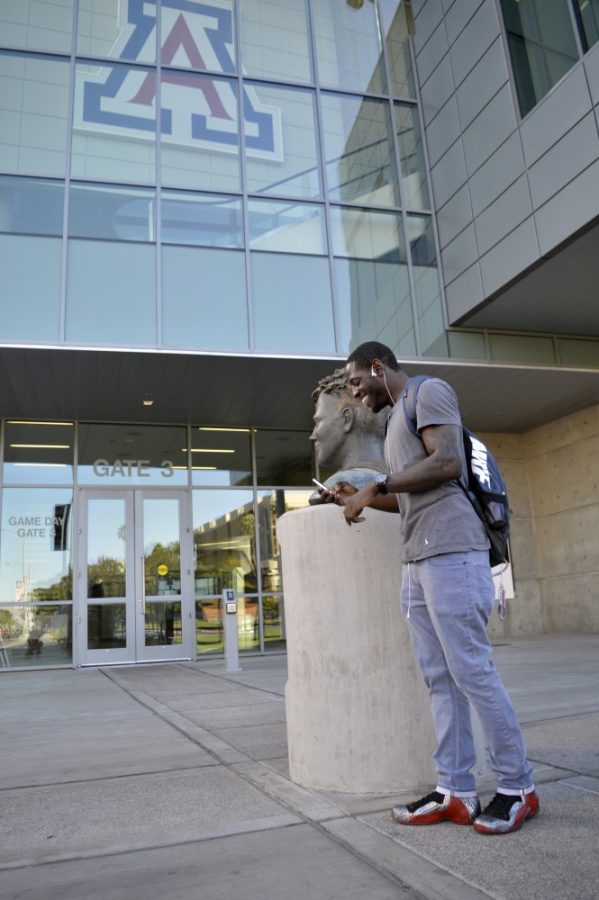Challenged by the NCAAand the U.S. Department of Defense and its Mind Matters Challenge, a team of UA researchers and athletes teamed up to improve the safety and behavioral responses to sport-related concussions.
The researchers — including UA football player, Jason Sweet — created BrainGainz, a virtual reality app that allows athletes to experience first-hand the symptoms of a concussion.
According to Ricardo Valerdi, an associate professor of systems and industrial engineering at the UA, BrainGainz received a monetary reward of $100,000 for its success in the Mind Matters Challenge that enabled the creators to generate the prototype for the virtual reality app.
On Feb. 5, the prototype was showcased to the NCAA in Indianapolis, Indiana.
“They absolutely loved it,” Valerdi said.
When utilizing the BrainGainz app, a user can virtually stand on the field and receive a number of punt returns before suddenly getting tackled by linebackers Jason Sweet and Scooby Wright. After getting tackled to the ground, the app simulates a series of five randomized symptoms experienced during a real concussion.
“I thought it would be beneficial to give the athlete a choice of trial and error that led to either a reward or a consequence based on their decision to stay in the game after enduring the concussion or to seek out medical assistance from the trainer,” Sweet said.
Although the app illustrates a football scenario, the issues of concussions are not merely limited to sports. Sports just happen to be the subject, but “it really can happen to anyone,” Valerdi said.
One of the major factors that the developers of the app are trying to convey is the idea that in order to reach people of our generation, where the use of technology has become a central commodity, “It has to be both entertaining and has to be a blast,” Sweet said.
The primary goal of the app is not to prevent concussions, but rather to educate people on the symptoms, so that unrecorded concussions are recognized and reported, according to Valerdi.
“Therefore the measure of success would appear to be counterintuitive — if the number of reported concussions goes up, then the app is a success,” he said.
“As a college football player my greatest fear is not having some type of medical problem when I’m 60 years old, my biggest fear is letting my team down and loosing the football game,” Sweet said.
“This is one of the most outstanding issues that we face today when it comes to changing the culture of the football players, prompting them to seek help when they notice symptoms of a concussion,” Valerdi said. He went on to say that the app is simply just the means to change and hopefully an ultimate behavioral shift in how concussions are handled in sport will happen.
“There are a lot of people on our football team that would probably die if they had to in a football game, because it’s that important [to them] at the time,” Sweet said. “When you’re in the heat of the matter, nothing else matters — you would do anything out of pure instinct.”
In order to convey the importance of the severity of concussions for players that have this much passion, the question of how to reach them in a way that will intrigue them and they will further respond to arises. Sweet said the way to mediate this problem is through boosting education and awareness in an appealing way.
“Football is a game in it’s own genre and there is nothing like it,” Sweet said. “I don’t want to see the game get softened or altered more than it already has.”
Follow Mackenzie Boulter on Twitter.









